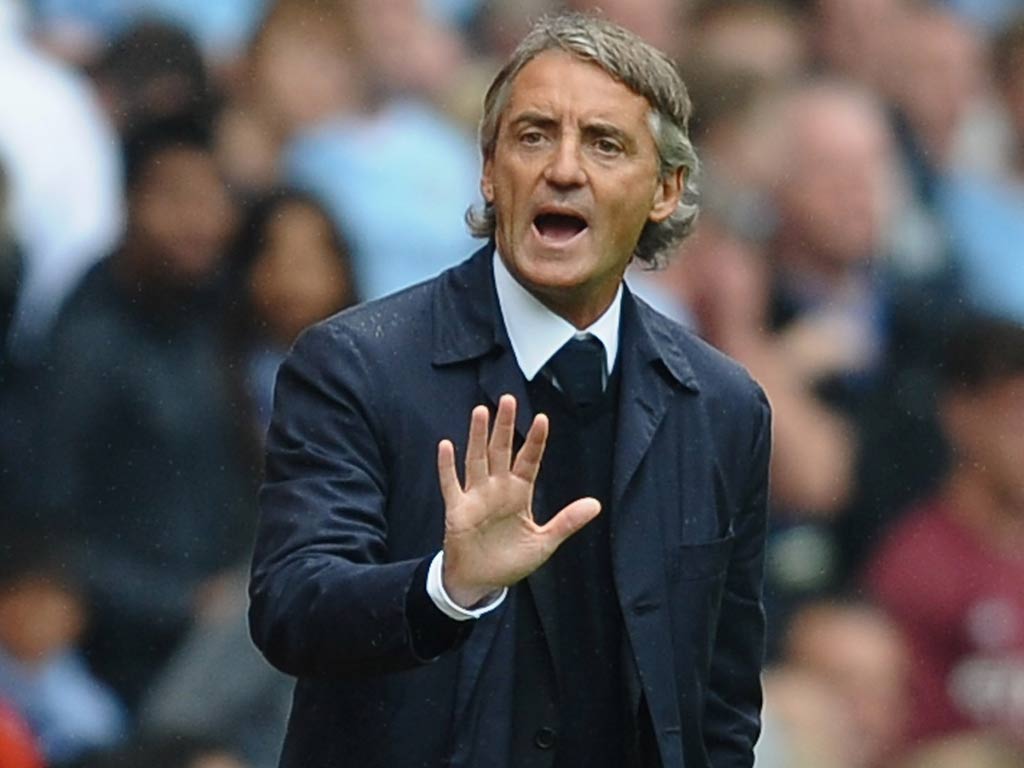Manchester City face nightmare Champions League draw as others dream of Wembley
United, Arsenal and Chelsea should progress but Mancini's side get Real in tough group

With the great and good of European football in the audience, and the usual po-faced Champions League group stages draw put on for the Monte Carlo glitterati, it was Frank Lampard who got things under way yesterday by bringing the trophy down the stairs and setting it on the plinth at the front of the stage.
For Michel Platini and all those sat in the front few rows it was a reminder that the Premier League – rich, indebted, all-conquering in terms of its television deals – is technically speaking back on top of Europe by virtue of Chelsea's victory in Munich. On top of that, in May, there is a second Champions League final at Wembley, the stadium Uefa likes best of all, in the space of three seasons.
This is not exactly a bad time for English football, with four teams in yesterday's draw and three of them among the top seeds. That is two more places in the Champions League group stages than Italy and one more than Germany. But however great the strength in depth of the four English clubs in the competition – surely deeper than that of any other country – they still cannot match the top two in Spain.
That was evident from the ceremony that followed the draw, the award of the clunkily titled "Uefa best player in Europe – 2012", in which two of the nominees came from Barcelona and the other from Real Madrid. It was Andres Iniesta who was eventually given the award to the delight of his fellow nominee and team-mate Lionel Messi and the annoyance of Cristiano Ronaldo, who steadfastly refused to crack a smile of congratulation.
In fact, it was gloriously frosty between the Real Madrid player and Messi, the two footballers whose rivalry has defined their generation. Messi shook hands with both the presenters but ignored Ronaldo. Iniesta graciously referred to the man from Portugal as a "colossus" when he was questioned and in return Ronaldo praised the Spain team. But between Messi and Ronaldo not a word, nor a glance or compliment was passed.
That did not change the fact that those three players, and their two teams, represent the very best that there is in Europe and once again they will be the teams to beat, no matter whose name is on the trophy. In his typically outspoken way, Ronaldo put it most succinctly when he opined on stage at the draw: "In my opinion the best teams in the world are there in Spain. In Real Madrid and Barcelona."
For Manchester City, who will face Real Madrid in the Bernabeu in their first Champions League fixture of the season on 18 September it is one hell of a draw. Theirs was already a tough group with Ajax, the Dutch champions in there as well but when Borussia Dortmund, the German champions two years running, were pulled out as well, Group D could officially be classified as the "Group of Death".
For Arsenal, Chelsea and Manchester United the group stage draw was much kinder. Chelsea have the next most difficult opponents after City, having been drawn with the Italian champions Juventus. Arsenal play the French champions Montpellier, from whom they signed Oliver Giroud. United have a return to Galatasaray, scene of Eric Cantona's attempt to take on the local stewards back in the mid-1990s.
But how does the level of opposition shape up beyond Madrid and Barcelona? On paper, the other two Spanish teams, Malaga and Valencia, are below the level of the four English clubs. For Malaga, whose dream of being funded by Qatari owners is starting to splinter, with the sale of Santi Cazorla and Salomon Rondon, the achievement is making it through the qualifiers. Valencia may have the excellent Roberto Soldado among others but are a selling club.
Where else does the competition come from? Juventus are much the stronger of the two Italian sides in the competition. They have been busy in the summer with a number of signings, some for the future and some for now, but in particular the midfielders Kwadwo Asamoah and Mauricio Isla from Udinese. As for Milan, they are now a selling club too, most notably in the sale of Zlatan Ibrahimovic and Thiago Silva to Paris St-Germain.
PSG, seeded in pot three, were the team whom the big guns really wanted to avoid and in the end they were placed in the same group as Porto. The French team, funded by Qatar, have spent €99m (£78.5m) on transfers alone this summer and that will rise by another €40m when Lucas Moura arrives from Sao Paulo in January. Their Ligue 1 season has started poorly, though, with three draws, the last two of them goalless.
Clearly by the time PSG click under Carlo Ancelotti, they too will be a serious force. For the time being, however, it is the usual suspects, Barcelona and Real Madrid, who form the bulk of the resistance to English football's four clubs in the Champions League this season, and they will be difficult to shift.
Join our commenting forum
Join thought-provoking conversations, follow other Independent readers and see their replies
Comments
Bookmark popover
Removed from bookmarks